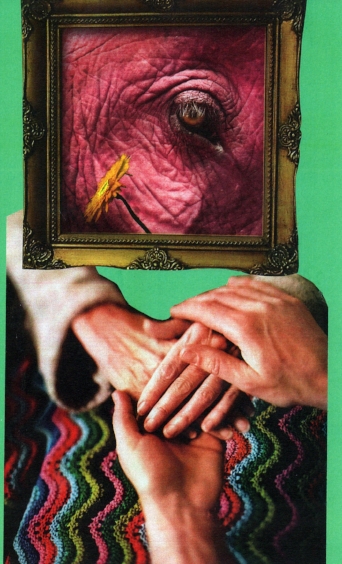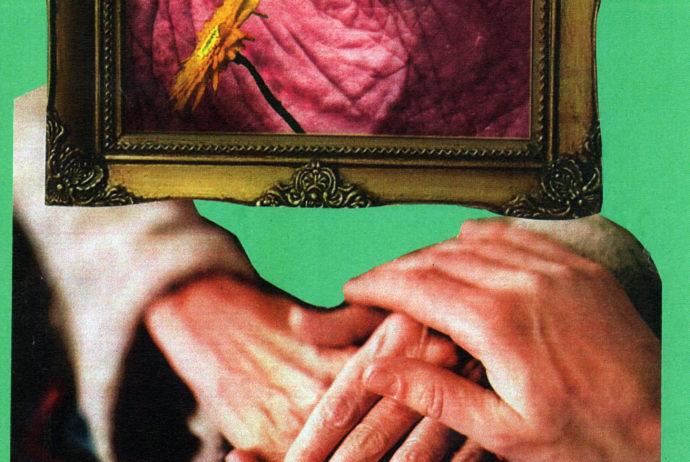
Dear Friends,
Mother Teresa of Calcutta said, “In this life we cannot do great things. We can only do small things with great love.” She chose the name of “Teresa” because she was inspired by St. Therese of Lisieux’s capability to do ordinary things with extraordinary love. https://blog.littleflower.org/therese-facts/st-therese-mother-teresa/
In a world enthralled with highly publicized grand gestures of romance and heroic sacrifice, let us pause this month to look deeply at the nature of Service. I write this essay on Labor Day in America and dedicate it to all those visible and invisible ones who serve life. Let’s celebrate what it means to do small things with great and healthy love in our daily life. I hope you find something useful and meaningful from my stories and suggested practices.
LOOKING DEEPLY AT SERVING LIFE
1986, Chicago, Michigan Avenue office of Haldane & Associates.
“There is no such thing as altruism, Marti.” Once again, my beloved mentor and boss Jack Chapman was challenging my notion of “pure” altruistic service. He’d observed the exhaustion (and not so secret resentment) that came when I acted in a way that denied my own needs in order to tend to others’ needs. Jack was urging me to examine my unhealthy habits about helping, giving, serving.
I was affronted by Jack’s words for they challenged my carefully constructed ego-identity as The Selfless One Who Only Thinks of Others. Like many of us, I grew up associating Service with saintly selflessness, with sacrificial deeds, requiring oodles of blood, sweat and tears. The more suffering, the greater the saint! Besides, what’s wrong with being a Martyr once in a while? I’d be in good company. After all, aren’t Mothers expected to sacrifice ALL for their children?
Overcoming my defensiveness and trusting Jack’s positive intention toward me, I chose to look more deeply at my understanding of Service and to examine my unconscious motives for serving others. This in-depth exploration coincided with my study of the Enneagram, an ancient mystical practice in understanding human personality. Its teachings show there are nine distinct types in the Enneagram model. Each type has its balanced approach to living; and each has its toxic blind spots that interfere with healthy functioning in the world.
Years of working with this model have liberated me to see more clearly the human gifts and limits of myself and others. Now I am able to keep a healthy balance in my Enneagram Two Style as one who is skilled at empathizing and supporting others. And, more importantly, I have the ability to examine and (mostly) restrain the Two’s maladaptive blind spots. These showed up as my unconscious belief that I must earn my place in the world; that the only way I could hope to meet my own needs is to take care of others.
“I slept and dreamt that life was joy.
Rabindranath Tagore
I awoke and saw that life was service.
I acted and behold, service was joy.“
Over the years, I’ve come to understand that when I choose to serve another in a healthy, balanced manner, there is always a clear payoff for me: JOY. Nothing more. If Joy is present, it’s a Green Light to go ahead and commit to the action of Service. Sure, it’s a bonus if I’m shown appreciation and that’s not why I am serving. Joy is my reward.
When Joy is absent, it signals a Red Light. Time to stop and check If feelings of sacrifice and suffering are present. First thing is to question why I have chosen to serve in this particular way. Is it to gain name and fame? Is it to have others like/admire/respect me more? Is it to get something in return, some way to meet my own unconscious neediness? The derivation of the word Service comes from the Middle English: from Old French servir; from Latin servire, and from servus meaning “slave”. If there is any vibe of feeling slavish to my ego-identity, it’s time to pump the brakes and re-evaluate my motives before acting!
Today, I know that healthy altruism involves serving others with loving detachment and an honest humble gratitude for the Joy I receive in return.
Another hugely liberating notion about Service came in 1999 when I first encountered the Guidelines of PeerSpirit Circle/The Circle Way. “We ask for what we need and offer what we can” is one of the basic Agreements that circle members are asked to abide by. It was so normalizing to have permission to ask for what I need! It reinforced the skill of identifying my needs and, more importantly, the habit of humbly asking for help. The second part of this Agreement, “to offer what we can,” was also a vital permission-giver. It helped me interrupt the Two’s pattern of offering far more than is appropriate or healthy.
Between the Enneagram and Circle Way practices, I have an entirely fresh and healthy approach to Service. Today, when the impulse to help arises, I run through a useful kind of mental checklist. Give it a try sometime.
Practice I: Get in touch with the Two aspect of your personality, the one who enjoys giving, helping or serving. Think of a time when you have been called upon to serve, do a favor, or help someone. Ask yourself:
- Will there be Joy in the giving here?
- Or will there be resentment, guilt or shame in saying “No” ?
- What are my reasons for giving?
- Is it to gain name and fame?
- Is it to have others like/admire/respect me more?
- Is it to get something in return, some way to meet my own unconscious neediness?
- What precisely am I willing to offer that will sustain that Joy?
- Exactly how much of my time, resources and psychic energy am I willing to offer?
- Am I able to be impeccable in keeping my word to offer something?
- Or will I back out because I’m exhausted or resentful or incompetent to deliver on this offer?
- If I never receive any thanks or recognition, will I regret the giving?
If this sounds like a lot of hoo-yah over a simple issue of Service, it is! And being awake to my unconscious patterns has alleviated so much mental suffering. It has brought this Type Two a new level of Joy, energy and fulfillment. My relationships are less fraught with guilt, shame and lousy communication. No more ridiculous game playing or mind reading. People trust I will offer and do what I can—with Joy.
Practice II: How do you react to the Circle Way Agreement, “We ask for what we need and offer what we can”?
- Do you know what you need in any given moment?
- Do you know how to figure that out, how to get support and learn about your own needs?
- What would your life be like if you simply offered what you can, no strings attached, no apologies or excuses?
“Service to others is the rent you pay for your room here on earth.“
Muhammad Ali

QUALITIES OF SERVING LIFE
To Serve Life is to be generous and kind. Service may require the ability to be a compassionate presence in the face of another’s suffering. True compassionate service allows the one who’s hurting a chance to express their needs. The “giver” is not there imposing their notions or solutions in the situation.
In the presence of someone who is seriously ill, or had a loved one die, many people say they don’t know what to do or say. They are surprised to learn that most often, simply paying attention and being there is enough. Sure practical help counts AND showing up matters in these times of need. It’s more than enough to serve as a steadfast, compassionate, often silent presence over time.
I learned a lot about what to do or say after my mom June transitioned in 2003. Her best friend Mary Calenda stepped in and became the compassionate presence I desperately needed. She understood grief so beautifully. She honored my bumpy relationship with June. Mary listened to me and blessed me with funny, wonderful stories about June. She never offered clichés or quick fixes. She was patient and steadfast in her devotion and kindness. Mary has been so generous with her time and heart over these 15 years. Now one of my dearest friends, I do my best to remember and to emulate Mary’s compassionate example, her light humor and story-telling, and her silent witnessing.
“The greatest among you will be your servant.”
Matthew 23:11
LEADERS AND SERVANTS
Another vital aspect of Service is leadership. Recently, Americans paid tribute to Senator John McCain because unlike so many of his peers, he was that rare leader who understood that a Leader is a Servant, first and foremost. If you read the Herman Hesse’s classic, Journey to the East, you will enjoy meeting Leo, the “good and perfect servant” who guides the group of pilgrims on their mystical journey to meet the President of the League. Some people credit this book with influencing the modern movement of Servant Leadership.
Elsewhere, be sure to visit SoulCollage® Facilitator Michaela Daystar’s exquisite website where she writes an inspiring story about “The Inner Terrain of Leadership.”
“But giving life is not so easy.
D. H. Lawrence
It doesn’t mean handing it out to some mean fool
or letting the living dead eat you up.
It means kindling the life-quality where it was not.
Even if it is only in the whiteness
of a washed pocket handkerchief.”
Last and not least, let’s talk about Servants, an old-fashioned word we class-denying Americans are averse to using. Horrors–notions of Downton Abbey dance uneasily in our head!
Servants are simply the people who make your life more wonderful, easy, and simple. By that definition, many parents and family members are servants!
My mother and grandmother made a point of appreciating all those who gave them service. They knew their names and regarded them as fully human. Mom and Gram were famous for writing letters of praise to the company “Big Bosses.” Of course, they weren’t shy to register complaints about products. However, having endured the Depression, they avoided jeopardizing anyone’s job. Contrast that to our modern habit of spewing venomous critiques about service and products via social media!
Servants are the food server, the barista, the newspaper carrier; those who help out with your lawn and cleaning your home, the garbage men, the police or fire employees, civil servants; the customer service/online help desk people; the grocer, the butcher, the baker, the auto mechanics; the workers at the gas station, copy store, florist, dry cleaner, or hardware store. Servants provide pampering and grooming care. Or they are the experts at the library or in health care for humans and pets, transportation, banking, education, finance or law. How about the clergy and all the volunteers at your place of worship? And of course, those in the military and their families who are called upon to sacrifice so much on behalf of the nation.
PRACTICE: Today we live in a not too pretty time of Customer Entitlement. I invite you to look deeply at the humanity of those who give you service.
- Who are the servants in your daily life?
- Do you know their names or anything personal about them?
- What is the energy you bring to encounters with them?
- When their service is “sub-par,” do you pause before complaining? Do you try to cut them some slack? Do you recognize the human being in that service role?
- When was the last time you expressed a random kindness to a servant for their service?
Thank you, dear reader, for the Joy I receive by writing this monthly essay for you. I hope you find it meaningful and helpful in your daily life. Please share it with others and comment below. If I can assist you in any of these practices, please write me using my Contact page.
Enjoy contemplating the nature of Service!
May you walk in Beauty today and all the days of your life.



Thank you, Nancy, for reading and commenting on the Service essay.
I am grateful to have become aware of how to discern between genuine service and the Two’s unconscious impulses. This is an ongoing practice for me!
Best wishes to you, sister Two!
Beautifully written. This spoke to me on so many levels. This was also me many years ago and I am also a 2 on the enneagram. Thank you for creating a wonderful distinction around service.
Thank for this beautifully written introspection about service. It’s also a lovely reminder about being true to who we are. The older I get the more I value being of service to others and to myself.
Thank you, dearest Glenda, for your comment. Jung was right! We are fools to our future selves. I am grateful to be learning and maturing.
Much love to you!
Dear Joanne,
Thank you so much for your comments. I’m new at this essay writing so it can be daunting sometimes. I am happy to know it was useful to you and I’m interested in what things you remembered. Would you be willing to share those thoughts, here or via my email (marti@martibeddoe.com)?
Have a beautiful month, Joanne. Next up in October is looking deeply at Partnership. Love, Marti
I enjoyed reading your essay, Marti, because it reinforces the things that I know to be true and reminds of somethings I’d forgotten. Thank you for sharing.